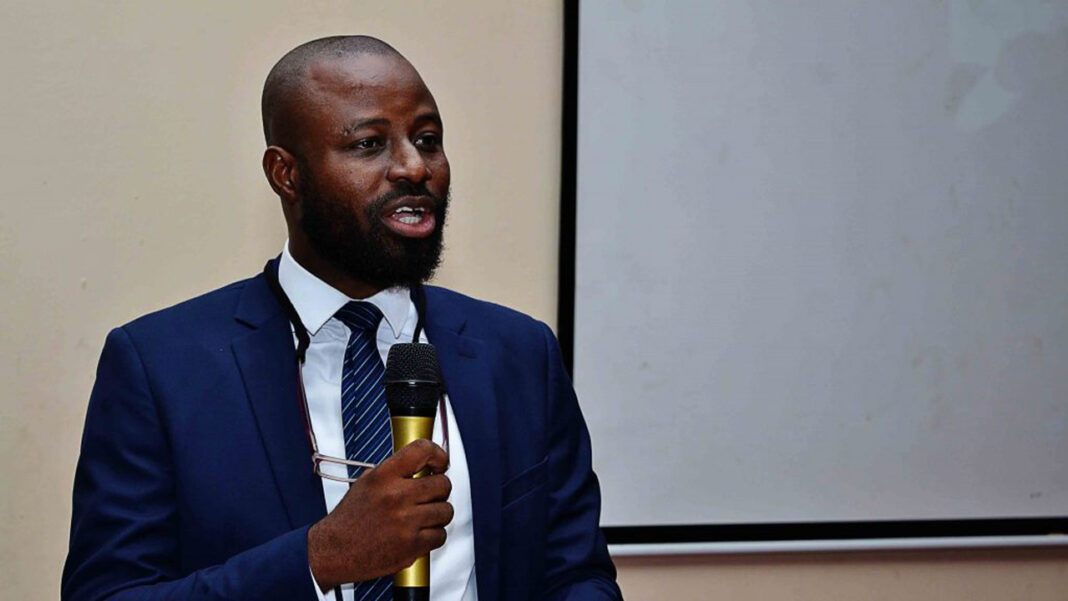By Alex Ekemenah
The Socioeconomic Rights and Accountability Project (SERAP), a non-governmental organization based in Lagos, has accused the Muhammadu Buhari-led administration of grand failure and massive corruption in the water, health and education sectors in the country.
This accusation was made at a Press Conference held in Lagos recently.
Recalling the promises first made in his inaugural speech on May 29, 2015 President Muhammadu Buhari stated that “Insecurity, pervasive corruption, the hitherto unending and seemingly impossible fuel and power shortages are the immediate concerns. He then made a clear promise that his government would “tackle these challenges head on”.
He also promised to “ensure that there is responsible and accountable governance at all levels of government in the country. The Federal Government would not fold its arms and close its eyes to what is going on in the states and local governments.” In 2019, President Buhari once again promised that his government would “intensify efforts in improving security, the Economy and Fighting Corruption.”
The promises also impose a responsibility to ensure transparency and accountability at all levels of government, and mean that government and public officials should timely and consistently respond to Freedom of Information requests from Nigerians.
“Unfortunately, President Buhari’s government has made little to no progress in fulfilling the promises made to Nigerians to fight grand corruption, end impunity of perpetrators, respect the rule of law, and ensure access of socially and economically vulnerable Nigerians to basic public goods and services, such as quality education healthcare, and regular and uninterrupted water supply. The government’s promise to fight corruption and end impunity imposes a moral and legal responsibility to protect the rule of law, ensure sustainable development and full respect for Nigerians’ constitutionally and internationally guaranteed human rights, as well as to obey court judgments” SERAP noted.
Speaking on behalf of SERAP, Mr. Kolawole Oluwadare, said SERAP “is seriously concerned about the rising rate of poverty and socio-economic inequality in Nigeria”.
“The recent report by the National Bureau of Statistics (NBS) contained damning revelations that some 133 million Nigerians are poor, despite the government reportedly spending N500 billion yearly on social investment programmes. The rising poverty is an obvious result of many years of corruption and mismanagement of the country’s commonwealth and neglect of the socio-economic rights of the people. Corruption, the bane of Nigeria’s development is flourishing with impunity, and appears to be winning”, Mr. Oluwadare lamented.
“In spite of the growing deficit in our national budget and increasing national debt profile, access to basic public goods and services such as quality education, affordable healthcare and regular and uninterrupted water supply has become almost non-existent due primarily to systemic and widespread corruption in these sectors”, Mr. Oluwadare continued.
“Yet, unresolved allegations of corruption in public institutions like the Universal Basic Education Commission (UBEC) and State Universal Basic Education Boards (SUBEBs) continue to undermine public confidence in the education sector, lead to the erosion of access to education, and if not urgently addressed will lead to an increase in out-of-school children, and exacerbate educational inequalities in the country. Due to government’s inability to meet the demands of ASUU, academic activities were suspended for more than eight (8) months across public institutions in Nigeria.
Oluwadare said “investigating the allegations of corruption and mismanagement of Nigeria’s resources, prosecuting suspected perpetrators and recovering any missing public funds would contribute to addressing the systemic and widespread corruption, which has disproportionately affected the most vulnerable and marginalized, and entrenched inequality. This is in spite of alarming revelations by the Auditor General of the Federation in the 2018 and 2019 Auditor General’s report”.
“The fight against corruption is also part and parcel of the 2030 Development Agenda. Goal 16.5 calls upon Member States to substantially reduce corruption and bribery in all their forms and goal 16.4 requires them to significantly reduce illicit financial flows and to strengthen the recovery and return of stolen assets”, Oluwadare noted.
“In addition, goal 16.6 calls upon Member States to develop effective, accountable and transparent institutions at all levels. The Nigerian government is yet to account for several millions of dollars of Abacha loot recovered from 2015 till date. Lack of progress in the fight against grand corruption and the promise to obey the rule of law is further buttressed by the fact that many high-ranking officials suspected of corruption rarely end up in jail, as suspects continue to exploit the flaws in the justice system to the point where individuals are profiting from their crimes.”
SERAP, therefore, urge President Buhari to direct the Attorney General of the Federation and Minister of Justice and appropriate anti-corruption agencies, without further delay, to thoroughly, transparently and effectively investigate the cases of corruption in the water, health and education sector as well documented in the 2018 and 2019 Auditor General’s reports.


